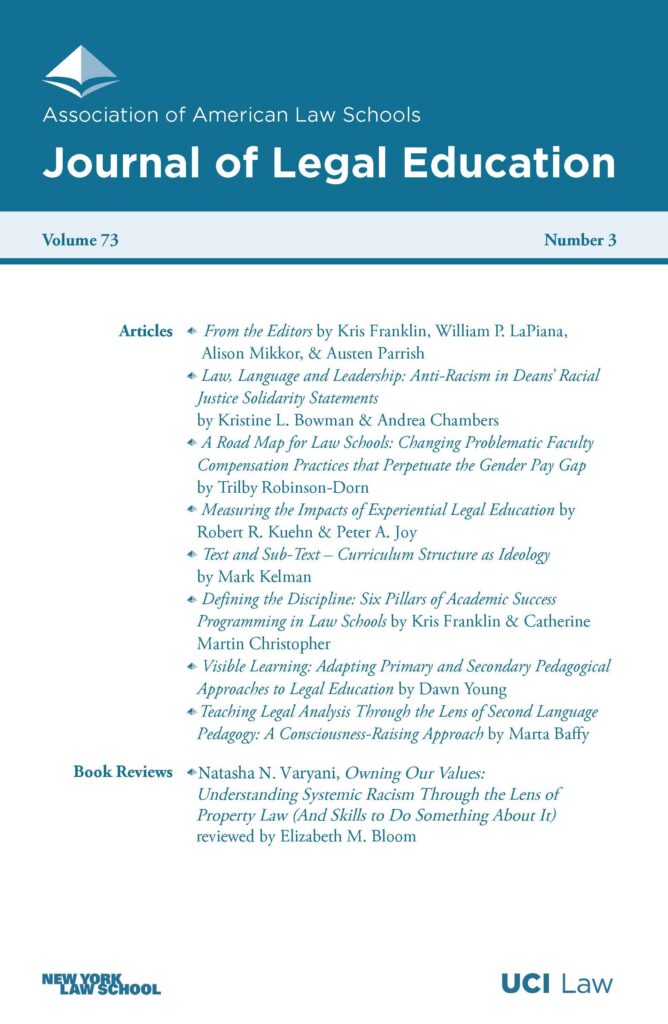The recently released issue (73-3) of the Journal of Legal Education includes articles that examine the relationship between legal pedagogy, curricular design, and the structure of organizations related to legal education and the legal profession.
This issue was edited by New York Law School and the University of California, Irvine School of Law and features the following articles:
From the Editors
- “From the Editors” by Kris Franklin, Bill LaPiana, Alison Mikkor and Austen Parrish
Articles
- “Law, Language and Leadership: Anti-Racism in Deans’ Racial Justice Solidarity Statements” by Kristine L. Bowman and Andrea Chambers
- “A Road Map for Law Schools: Changing Problematic Faculty Compensation Practices that Perpetuate the Gender Pay Gap” by Trilby Robinson-Dorn
- “Measuring the Impacts of Experiential Legal Education” by Robert R. Kuehn and Peter A. Joy
- “Text and Sub-Text – Curriculum Structure as Ideology” by Mark Kelman
- “Defining the Discipline: Six Pillars of Academic Success Programming in Law Schools” by Kris Franklin and Catherine Martin Christopher
- “Visible Learning: Adapting Primary and Secondary Pedagogical Approaches to Legal Education” by Dawn Young
Book Review
- Book Review: Natasha N. Varyani, Owning Our Values: Understanding Systemic Racism Through the Lens of Property Law (And Skills to Do Something About It) reviewed by Elizabeth M. Bloom

About the JLE
Established in 1948, the JLE is the journal of record for the American legal academy, published by AALS in its role as the learned society for the study of law and legal education. The publication’s primary purpose is to provide AALS member schools and faculty with articles of timely relevance to a wide array of interests and areas of expertise. The JLE serves as a meaningful resource for faculty and others to keep abreast of the most recent thinking, trends, and changes in legal education.

